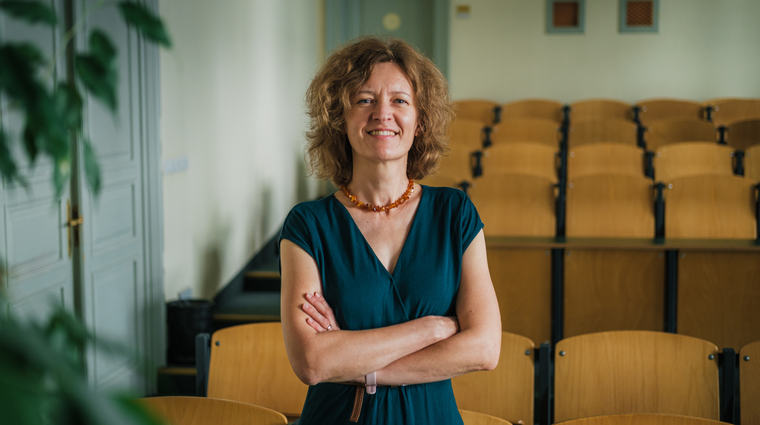Science at FSV UK: Economist Barbara Pertold-Gebicka on women’s position in the labor market and research experience in Denmark

Science at FSV UK: Economist Barbara Pertold-Gebicka on women’s position in the labor market and research experience in Denmark
Studying in Poland gave her an interdisciplinary outlook on the world, her experience in the Czech Republic drew her fully into economics, and a stay in Denmark opened new research perspectives. Today, Barbara Pertold-Gebicka from the Institute of Economic Studies at FSV UK seeks answers to how policies and social norms shape the educational and career paths of women and men. Her research focuses, for example, on the position of mothers in the labor market and on why so few women choose to study science and technology.
Her research combines econometric and statistical methods of data analysis with topics related to human capital, education, and the labor market. In her dissertation, she examined the position of university graduates in the labor market, and later during her postdoctoral stay in Denmark she focused on women—particularly mothers. “I was interested in how family policy influences employment, earnings, and parents’ satisfaction,” she explains. In recent years, she has returned to the economics of education. For instance, she studied how distance learning during the pandemic affected the study paths of university students.
At the same time, she continues to focus on parenthood—aiming to provide a comprehensive view of how it influences the careers of women and men in the Czech Republic and which policies can make a difference. “I find it interesting and valuable to use available data to see how the (un)availability of resources and the incentives created by policies and social norms influence people’s behavior in areas we don’t usually associate directly with economics, but that are nonetheless crucial for it. Studying the position of women in the labor market is important because they make up half of our workforce and pass on behavioral patterns to children. And studying education is important because it is the process of building human capital,” she says of her motivation.
Read the full article about her research on our website about science at FSV UK.





